Current Team Members

Dr. med. Marc Huppertz, MD
Marc joined the team in 2018 as a doctoral candidate working on post-traumatic changes in articular cartilage and their assessment based on quantitative MRI. As a medical student, he was involved in numerous projects besides his MD thesis that he finished in 2021. In 2020, he graduated from RWTH Aachen University and started his career in as a clinical radiologist. In his daily clinical work at the Department of Diagnostic and Interventional Radiology (University Hospital Aachen), he enjoys to bring together his care for patients, interest in technological advances, and enthusiasm for research and science. Currently, he is working on several projects that intend to improve aspects of diagnostic imaging of the lower extremities.
Marc joined the team in 2018 as a doctoral candidate working on post-traumatic changes in articular cartilage and their assessment based on quantitative MRI. As a medical student, he was involved in numerous projects besides his MD thesis that he finished in 2021. In 2020, he graduated from RWTH Aachen University and started his career in as a clinical radiologist. In his daily clinical work at the Department of Diagnostic and Interventional Radiology (University Hospital Aachen), he enjoys to bring together his care for patients, interest in technological advances, and enthusiasm for research and science. Currently, he is working on several projects that intend to improve aspects of diagnostic imaging of the lower extremities.
Firas Khader, M.Sc.
Firas is a PhD candidate with a focus on applying machine learning techniques to medical image analysis. Prior to joining the group in 2020 he received his bachelor’s degree in Electrical Engineering at Hamburg University of Technology and his master’s degree at RWTH Aachen University. In his master thesis he conducted research on deep learning-based behaviour analysis that was followed up by an internship as a machine learning-engineer in the industry where he incorporated MRI knee segmentation algorithms into the workflow of clinical radiologists. His current work comprises automatic analysis and detection of pathologies on knee MRI studies and chest radiographs using artificial neural networks as well as a wide range of other projects involving aspects of medicine and artificial intelligence.
Firas is a PhD candidate with a focus on applying machine learning techniques to medical image analysis. Prior to joining the group in 2020 he received his bachelor’s degree in Electrical Engineering at Hamburg University of Technology and his master’s degree at RWTH Aachen University. In his master thesis he conducted research on deep learning-based behaviour analysis that was followed up by an internship as a machine learning-engineer in the industry where he incorporated MRI knee segmentation algorithms into the workflow of clinical radiologists. His current work comprises automatic analysis and detection of pathologies on knee MRI studies and chest radiographs using artificial neural networks as well as a wide range of other projects involving aspects of medicine and artificial intelligence.
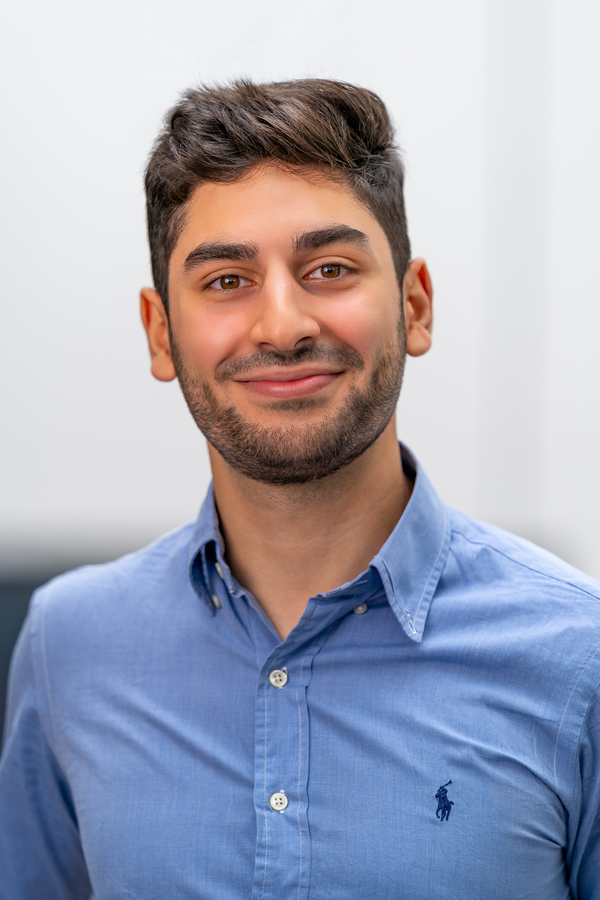
Gustav Müller-Franzes, M.Sc.
Gustav studied electrical engineering at RWTH Aachen University. He developed deep learning methods for the classification of breast cancer when pursuing his bachelor thesis at the Institute of Imaging and Computer Vision (RWTH Aachen University). Following that, he investigated the effects of inter-rater segmentation variance on radiomics features during his master thesis. He joined the team in 2020 and is now a PhD candidate involved in several projects with the primary goal to establish and validate deep learning methods in clinical practice. Currently, he is working on machine learning-based optimization strategies in breast cancer screening, joint MRI post processing, and other aspects of medicine.
Gustav studied electrical engineering at RWTH Aachen University. He developed deep learning methods for the classification of breast cancer when pursuing his bachelor thesis at the Institute of Imaging and Computer Vision (RWTH Aachen University). Following that, he investigated the effects of inter-rater segmentation variance on radiomics features during his master thesis. He joined the team in 2020 and is now a PhD candidate involved in several projects with the primary goal to establish and validate deep learning methods in clinical practice. Currently, he is working on machine learning-based optimization strategies in breast cancer screening, joint MRI post processing, and other aspects of medicine.
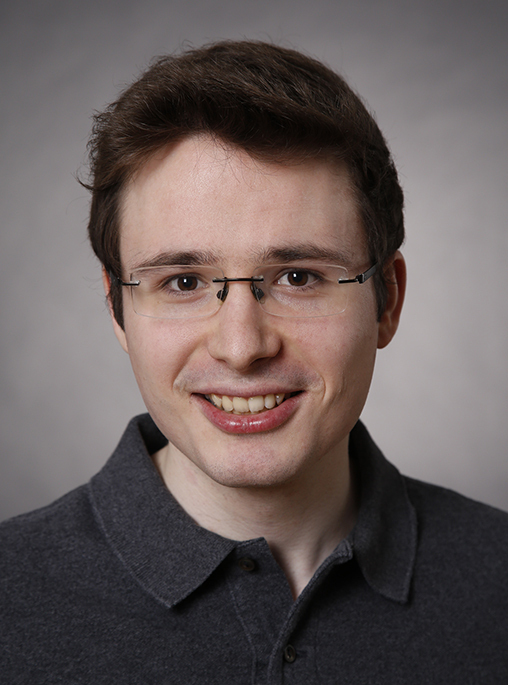
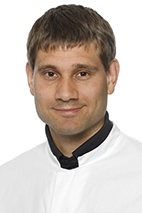
PD Dr. med. Sven Nebelung, MD, PhD - Group Leader
Sven is a clinical radiologist and imaging scientist with a focus on clinically motivated imaging research that aims to refine image acquisition and post-processing methodologies in close collaboration with clinicans, clinical scientists, engineers, MR physicists, and imaging scientists. After studying medicine at RWTH Aachen University, he completed his MD thesis on cartilage tissue engineering and joined the Department of Orthopedics (University Hospital Aachen) to receive orthopedic training during the surgical common trunk. After undertaking a period of research at the Institute of Anatomy (RWTH Aachen University) in 2015, he entered Radiology specialist training at the Department of Diagnostic and Interventional Radiology (University Hospital Aachen). After pursuing his research at the Department of Diagnostic and Interventional Radiology (University Hospital Düsseldorf) from 2019 to 2021, he moved back to Aachen to lead the group. His research is generously funded by the German Research Association (DFG) and by funds from RWTH AachenUniversity and Heinrich-Heine-University Düsseldorf. His recent publications are listed on Google Scholar and Pubmed. He also routinely reviews manuscripts for medical, technical, and interdisciplinary scientific journals.
Sven is a clinical radiologist and imaging scientist with a focus on clinically motivated imaging research that aims to refine image acquisition and post-processing methodologies in close collaboration with clinicans, clinical scientists, engineers, MR physicists, and imaging scientists. After studying medicine at RWTH Aachen University, he completed his MD thesis on cartilage tissue engineering and joined the Department of Orthopedics (University Hospital Aachen) to receive orthopedic training during the surgical common trunk. After undertaking a period of research at the Institute of Anatomy (RWTH Aachen University) in 2015, he entered Radiology specialist training at the Department of Diagnostic and Interventional Radiology (University Hospital Aachen). After pursuing his research at the Department of Diagnostic and Interventional Radiology (University Hospital Düsseldorf) from 2019 to 2021, he moved back to Aachen to lead the group. His research is generously funded by the German Research Association (DFG) and by funds from RWTH AachenUniversity and Heinrich-Heine-University Düsseldorf. His recent publications are listed on Google Scholar and Pubmed. He also routinely reviews manuscripts for medical, technical, and interdisciplinary scientific journals.
Dr. rer. nat. Teresa Nolte, M.Sc.
As a trained MR physicist, Teresa supports our research on musculoskeletal MRI. After studying Physics at RWTH Aachen University, Teresa followed her interests and joined the Department of Physics of Molecular Imaging Systems at the Institute for Experimental Molecular Imaging (RWTH Aachen University) to complete her PhD thesis (entitled “Magnetic Resonance Fingerprinting for Quantitative Imaging of the Breast”) under the supervision of Prof. Volkmar Schulz. She joined the team in 2021 and brings her profound skills on protocol optimization and data evaluation as well as her dedicated interests in quantitative MRI techniques and their potential clinical application to the table.
As a trained MR physicist, Teresa supports our research on musculoskeletal MRI. After studying Physics at RWTH Aachen University, Teresa followed her interests and joined the Department of Physics of Molecular Imaging Systems at the Institute for Experimental Molecular Imaging (RWTH Aachen University) to complete her PhD thesis (entitled “Magnetic Resonance Fingerprinting for Quantitative Imaging of the Breast”) under the supervision of Prof. Volkmar Schulz. She joined the team in 2021 and brings her profound skills on protocol optimization and data evaluation as well as her dedicated interests in quantitative MRI techniques and their potential clinical application to the table.

PD Dr. med. Dipl.-Phys. Daniel Truhn, MD, M.Sc.
Daniel is a physicist, imaging scientist, and clinical radiologist with a dedicated focus on machine learning and magnetic resonance imaging. After studying physics at RWTH Aachen University and Imperial College in London, he continued to satisfy his thirst for knowledge by studying medicine at RWTH Aachen University. In 2013, he completed his MD thesis on the compatibility of positron emission tomography and magnetic resonance imaging and joined the Department of Diagnostic and Interventional Radiology (University Hospital Aachen) to become a board-certified clinical radiologist in 2019. Besides his clinical work, he pursued his research interests in machine learning as a fellow at the Institute of Imaging and Computer Vision (RWTH Aachen University) for two years before returning to the clinic where he currently leads the group. His research focuses on bringing machine learning-methods into clinical practice and on bridging the gaps between research possibilities and clinical applicability. His recent publications are listed on Pubmed. He also routinely reviews manuscripts for medical, technical, and interdisciplinary scientific journals.
Daniel is a physicist, imaging scientist, and clinical radiologist with a dedicated focus on machine learning and magnetic resonance imaging. After studying physics at RWTH Aachen University and Imperial College in London, he continued to satisfy his thirst for knowledge by studying medicine at RWTH Aachen University. In 2013, he completed his MD thesis on the compatibility of positron emission tomography and magnetic resonance imaging and joined the Department of Diagnostic and Interventional Radiology (University Hospital Aachen) to become a board-certified clinical radiologist in 2019. Besides his clinical work, he pursued his research interests in machine learning as a fellow at the Institute of Imaging and Computer Vision (RWTH Aachen University) for two years before returning to the clinic where he currently leads the group. His research focuses on bringing machine learning-methods into clinical practice and on bridging the gaps between research possibilities and clinical applicability. His recent publications are listed on Pubmed. He also routinely reviews manuscripts for medical, technical, and interdisciplinary scientific journals.


Simon Westfechtel, M.Sc.
Simon studied Computational Social Systems at RWTH Aachen University and joined the group in 2021. With his brother being a physician and himself being a member of the German Life Saving Association (DLRG) from a young age, he has developed a natural interest in medicine. Thus, working in the group provided him with the perfect opportunity to combine his interest in medicine with his background in computer science. His work is currently focused on various methods for automatic measurements of medical images, particularly of the knee joint.
Simon studied Computational Social Systems at RWTH Aachen University and joined the group in 2021. With his brother being a physician and himself being a member of the German Life Saving Association (DLRG) from a young age, he has developed a natural interest in medicine. Thus, working in the group provided him with the perfect opportunity to combine his interest in medicine with his background in computer science. His work is currently focused on various methods for automatic measurements of medical images, particularly of the knee joint.
Salah Atallah
Tianyu Han
Debora Jutz
Soroosh Tayebi Arasteh
Roman Vuskov
Patrick Wienholt
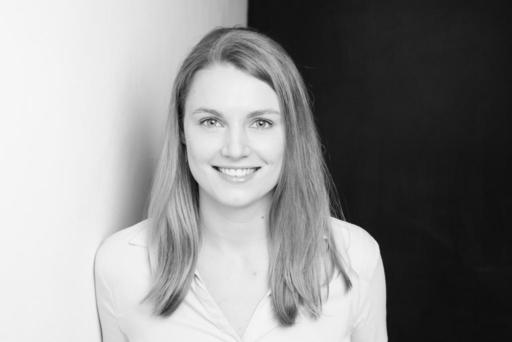
Dr. med. Lisa Dötsch, MD
Lisa joined the team as a medical student in 2016. After receiving her medical degree from RWTH Aachen University in 2019 she decided to make her way back to the roots – and moved back to southern Germany where she started her clinical career by specializing in internal medicine. The main focus of her research (and the MD thesis finished in 2021) was to evaluate meniscus functionality on the basis of advanced MRI techniques in hopes of facilitating earlier diagnosis of meniscal pathologies.
Lisa joined the team as a medical student in 2016. After receiving her medical degree from RWTH Aachen University in 2019 she decided to make her way back to the roots – and moved back to southern Germany where she started her clinical career by specializing in internal medicine. The main focus of her research (and the MD thesis finished in 2021) was to evaluate meniscus functionality on the basis of advanced MRI techniques in hopes of facilitating earlier diagnosis of meniscal pathologies.
Dr. med. Tobias Hafner, MD
Tobias joined the team in 2017. He started his residency in orthopedics and trauma surgery at the University Hospital Aachen, Germany, in 2020 with a strong interest in sports medicine and degenerative joint diseases. During his MD thesis that he completed in 2021, he focused on the imaging correlates of cartilage functionality based on quantitative MRI mapping by using different enzyme exposure models. His published research is enlisted on Pubmed.
Tobias joined the team in 2017. He started his residency in orthopedics and trauma surgery at the University Hospital Aachen, Germany, in 2020 with a strong interest in sports medicine and degenerative joint diseases. During his MD thesis that he completed in 2021, he focused on the imaging correlates of cartilage functionality based on quantitative MRI mapping by using different enzyme exposure models. His published research is enlisted on Pubmed.
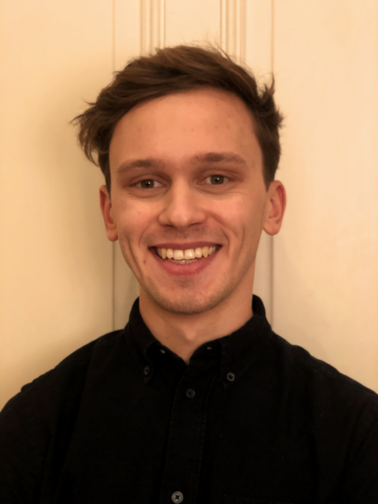
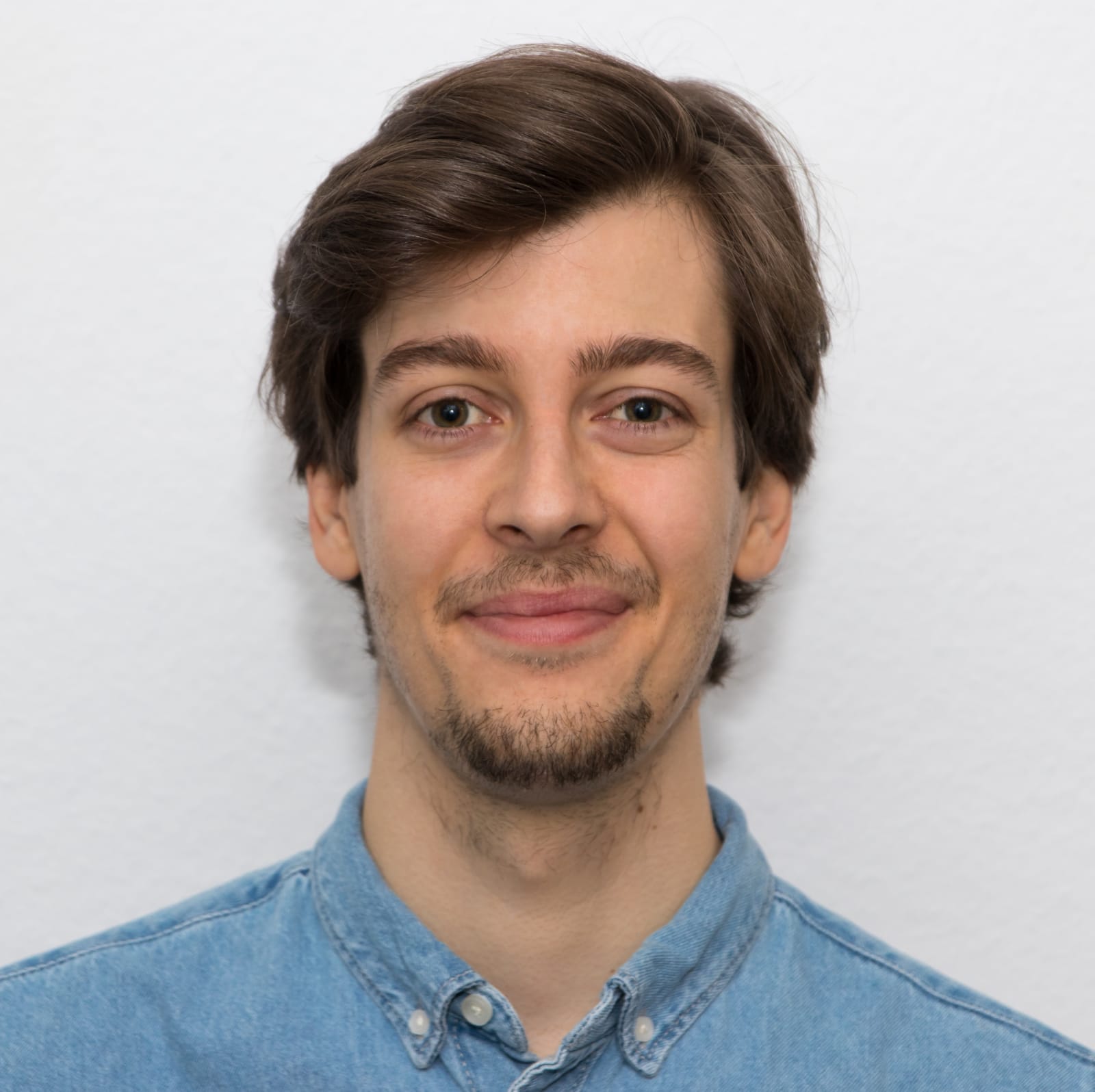
Niklas Kotowski, M.Sc.
Niklas joined the group as a master student of RWTH Aachen University in 2019 who focused on computer sciences. His strong interest in automatic measurements of medical images and image registration helped to bring to fruition a wide range of projects. Unfortunately, after finishing his master thesis on “Accelerating symbolic simulation to analyze the effect of delays in train timetables” he also left the group in 2021.
Niklas joined the group as a master student of RWTH Aachen University in 2019 who focused on computer sciences. His strong interest in automatic measurements of medical images and image registration helped to bring to fruition a wide range of projects. Unfortunately, after finishing his master thesis on “Accelerating symbolic simulation to analyze the effect of delays in train timetables” he also left the group in 2021.
Oliver Said, MD
Oliver is a physician and joined the group in 2018 as a medical student. He studied medicine at Rīga Stradiņš University of Riga, Latvia and started his medical career as a resident radiologist at the Department of Diagnostic and Interventional Radiology (University Hospital Aachen), where he worked from 2019 to 2021. The main focus of his MD thesis was the functional evaluation of human articular cartilage as assessed on the basis of quantitative MRI parameters.
Oliver is a physician and joined the group in 2018 as a medical student. He studied medicine at Rīga Stradiņš University of Riga, Latvia and started his medical career as a resident radiologist at the Department of Diagnostic and Interventional Radiology (University Hospital Aachen), where he worked from 2019 to 2021. The main focus of his MD thesis was the functional evaluation of human articular cartilage as assessed on the basis of quantitative MRI parameters.

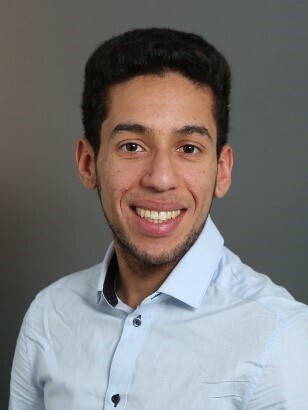
Mazen Slimi, M.Sc.
Mazen studies electrical engineering at RWTH Aachen University and joined the group in 2019. As a student assistant, he was involved in several projects that dealt with digital image processing and machine learning. After finishing his master thesis on “Implementation and evaluation of FPGA accelerated Image Processing modules for Edge Computing Platforms”, he left the group to become an electrical engineer working in biomedical engineering.
Mazen studies electrical engineering at RWTH Aachen University and joined the group in 2019. As a student assistant, he was involved in several projects that dealt with digital image processing and machine learning. After finishing his master thesis on “Implementation and evaluation of FPGA accelerated Image Processing modules for Edge Computing Platforms”, he left the group to become an electrical engineer working in biomedical engineering.
Praise Thampi, B.Sc.
Praise joined the team in 2019 as a master student in computer engineering at RWTH Aachen University. She worked on a variety of projects and has been involved in a variety of data post-processing tasks.
Praise joined the team in 2019 as a master student in computer engineering at RWTH Aachen University. She worked on a variety of projects and has been involved in a variety of data post-processing tasks.


Ken Tonio Zwingenberger, MD
Ken Tonio joined the group for his MD thesis in 2017. He studied medicine at RWTH Aachen University and at the University of Bologna (Italy) and graduated in 2019. He received part of his practical training in Uganda, Australia, and Switzerland. In his MD thesis that he finished in 2021, he assessed the influence of static and dynamic compression on the the imaging correspondence of human articular cartilage to facilitate earlier diagnosis of osteoarthritis by combining quantitative MRI with loading. His medical interest in the field of hemato-oncology, specifically in diseases of the hematopoietic and lymphoid tissues, led him to pursue a career in the field that he started in 2021. During the 2020 COVID-19 pandemic he supported local health authorities in Berlin tracking chains of infections and containing the spread of the disease.
Ken Tonio joined the group for his MD thesis in 2017. He studied medicine at RWTH Aachen University and at the University of Bologna (Italy) and graduated in 2019. He received part of his practical training in Uganda, Australia, and Switzerland. In his MD thesis that he finished in 2021, he assessed the influence of static and dynamic compression on the the imaging correspondence of human articular cartilage to facilitate earlier diagnosis of osteoarthritis by combining quantitative MRI with loading. His medical interest in the field of hemato-oncology, specifically in diseases of the hematopoietic and lymphoid tissues, led him to pursue a career in the field that he started in 2021. During the 2020 COVID-19 pandemic he supported local health authorities in Berlin tracking chains of infections and containing the spread of the disease.
Malin Ciba, B.Sc.
Malin is a medical student at RWTH Aachen University and joined the group in 2020. She has a strong interest in the technical background of MRI and its clinical application alike. During her MD thesis and beyond, she investigated the imaging correlates of joint functionality on the basis of MRI, in particular the response to loading after standardized ligament injuries. Her aim was to further standardize the MRI-based assessment of knee joint pathologies as surrogates of joint functionality and stability.
Malin is a medical student at RWTH Aachen University and joined the group in 2020. She has a strong interest in the technical background of MRI and its clinical application alike. During her MD thesis and beyond, she investigated the imaging correlates of joint functionality on the basis of MRI, in particular the response to loading after standardized ligament injuries. Her aim was to further standardize the MRI-based assessment of knee joint pathologies as surrogates of joint functionality and stability.
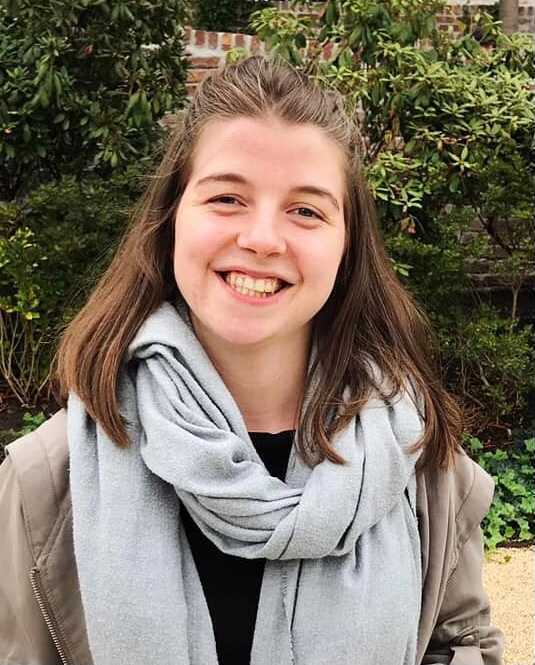

Stephanie Morscheid, MD
Stephanie is a resident radiologist and started her clinical training in radiology at the Department of Diagnostic and Interventional Radiology of the University Hospital Aachen in 2021. At the same time, she joined the team. Her fascination for MSK radiology has deep roots - she performed her MD thesis on cartilage tissue engineering at the renowned Center of Experimental Orthopaedics of Saarland University Medical Center in Homburg. She enthusiastically aims at bringing together her fascination for clinical imaging in all its diagnostic and therapeutic aspects, her passion for clinical research, and her strong interest in musculoskeletal diseases. She is currently involved in projects that aim to improve diagnostic imaging by using functional MRI techniques.
Stephanie is a resident radiologist and started her clinical training in radiology at the Department of Diagnostic and Interventional Radiology of the University Hospital Aachen in 2021. At the same time, she joined the team. Her fascination for MSK radiology has deep roots - she performed her MD thesis on cartilage tissue engineering at the renowned Center of Experimental Orthopaedics of Saarland University Medical Center in Homburg. She enthusiastically aims at bringing together her fascination for clinical imaging in all its diagnostic and therapeutic aspects, her passion for clinical research, and her strong interest in musculoskeletal diseases. She is currently involved in projects that aim to improve diagnostic imaging by using functional MRI techniques.

Darius Nürnberger, B.Sc.
Darius studies electrical engineering at RWTH Aachen University. Because of his strong interest in deep learning, especially in its application in medicine, he joined the group in 2019 to work on automated and deep learning-based algorithms for the analysis of lower extremity alignment and torsional alignment. After finishing his bachelor thesis, he continues to work on further refining these algorithms as a student assistant.
Darius studies electrical engineering at RWTH Aachen University. Because of his strong interest in deep learning, especially in its application in medicine, he joined the group in 2019 to work on automated and deep learning-based algorithms for the analysis of lower extremity alignment and torsional alignment. After finishing his bachelor thesis, he continues to work on further refining these algorithms as a student assistant.
Manuel Post, MD
Manuel studied medicine and received his medical degree from RWTH Aachen University in 2019. He currently works as a resident of radiology at the Department of Diagnostic and Interventional Radiology (University Hospital Aachen). He joined the team in 2016 and the main focus of his research (and soon-to-be-finished MD thesis) is to improve the detection of early degenerative joint diseases with quantitative MRI. He hopes that -someday- these findings will change his daily clinical work for the better.
Manuel studied medicine and received his medical degree from RWTH Aachen University in 2019. He currently works as a resident of radiology at the Department of Diagnostic and Interventional Radiology (University Hospital Aachen). He joined the team in 2016 and the main focus of his research (and soon-to-be-finished MD thesis) is to improve the detection of early degenerative joint diseases with quantitative MRI. He hopes that -someday- these findings will change his daily clinical work for the better.


Nicola Pridöhl, B.Sc.
Nicola joined the group in 2021 to work on MR imaging of joints with a particular focus on cartilage. She is a medical student at RWTH Aachen University, and her main interest is the clinical application of new MRI techniques to assess joints more comprehensively. In her MD thesis, she evaluates state-of-the-art research sequences for combined morphologic and quantitative imaging (such 3D MIXTURE) and their principal clinical usability with a dedicated focus on secondary models of cartilage lesions and osteoarthritis.
Nicola joined the group in 2021 to work on MR imaging of joints with a particular focus on cartilage. She is a medical student at RWTH Aachen University, and her main interest is the clinical application of new MRI techniques to assess joints more comprehensively. In her MD thesis, she evaluates state-of-the-art research sequences for combined morphologic and quantitative imaging (such 3D MIXTURE) and their principal clinical usability with a dedicated focus on secondary models of cartilage lesions and osteoarthritis.
Dr. med. Philipp Schad, MD
Philipp studied medicine at the University of Cologne. Since 2018, he has been working as a resident radiologist at the Department of Diagnostic and Interventional Radiology (University Hospital Aachen) and joined the team in 2019. Philipp is interested in the technical aspects and clinical application of MRI. He is also fascinated by the perspectives and chances that Artificial Intelligence brings to modern medicine, especially to clinical imaging. His current research is therefore focused on improving diagnostic imaging using conventional MRI and machine learning-based methods.
Philipp studied medicine at the University of Cologne. Since 2018, he has been working as a resident radiologist at the Department of Diagnostic and Interventional Radiology (University Hospital Aachen) and joined the team in 2019. Philipp is interested in the technical aspects and clinical application of MRI. He is also fascinated by the perspectives and chances that Artificial Intelligence brings to modern medicine, especially to clinical imaging. His current research is therefore focused on improving diagnostic imaging using conventional MRI and machine learning-based methods.
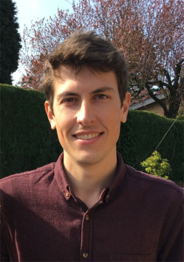

Justus Schock, M.Sc.
Justus studied electrical engineering at RWTH Aachen University. He completed his bachelor and master theses at the Institute of Imaging and Computer Vision (RTWH Aachen University). During his bachelor thesis, he developed methods to improve robustness of active appearance models for face tracking by better initialization with machine learning. During his master thesis, he focused on implementing statistical shape models in deep learning environments. Justus joined the team in 2019 and is now a PhD candidate at the Department of Diagnostic and Interventional Radiology (University Hospital Düsseldorf) and a research scientist at the Institute of Imaging and Computer Vision. He is involved in managing and overseeing several projects with a particular focus on musculoskeletal image acquisition and post processing.
Justus studied electrical engineering at RWTH Aachen University. He completed his bachelor and master theses at the Institute of Imaging and Computer Vision (RTWH Aachen University). During his bachelor thesis, he developed methods to improve robustness of active appearance models for face tracking by better initialization with machine learning. During his master thesis, he focused on implementing statistical shape models in deep learning environments. Justus joined the team in 2019 and is now a PhD candidate at the Department of Diagnostic and Interventional Radiology (University Hospital Düsseldorf) and a research scientist at the Institute of Imaging and Computer Vision. He is involved in managing and overseeing several projects with a particular focus on musculoskeletal image acquisition and post processing.
Julian Stiller, B.Sc.
Julian has been studying medicine at RWTH Aachen University since 2018 and joined the group in 2021. He is interested in both the technology behind MRI and the clinical opportunities (and challenges) of modern imaging. In his MD thesis, he tries to identify functional imaging markers of load transmission in intact/healthy and altered/diseased joints using both morphologic and quantitative MRI techniques.
Julian has been studying medicine at RWTH Aachen University since 2018 and joined the group in 2021. He is interested in both the technology behind MRI and the clinical opportunities (and challenges) of modern imaging. In his MD thesis, he tries to identify functional imaging markers of load transmission in intact/healthy and altered/diseased joints using both morphologic and quantitative MRI techniques.


David Topp, B.Sc.
David is a medical student at RWTH Aachen University and joined the team in 2020. He has a strong interest in both the technical background and clinical application of MRI. In his MD thesis, he focuses on the use of quantitative MRI sequences in detecting early osteoarthritis of the human knee joint by dismantling the complex interplay of biomechanical and biochemical factors that affect the disease. After finishing his primary project, he is looking forward to working on further projects to advance the clinical implementation of functional MRI techniques, and starting a career in clinical radiology.
David is a medical student at RWTH Aachen University and joined the team in 2020. He has a strong interest in both the technical background and clinical application of MRI. In his MD thesis, he focuses on the use of quantitative MRI sequences in detecting early osteoarthritis of the human knee joint by dismantling the complex interplay of biomechanical and biochemical factors that affect the disease. After finishing his primary project, he is looking forward to working on further projects to advance the clinical implementation of functional MRI techniques, and starting a career in clinical radiology.
Eva Winkelmeyer, B.Sc.
Eva studies medicine at RWTH Aachen University and joined the group in 2019. She is interested in the diagnostic possibilities of MRI, in particular in the context of the musculoskeletal system. As a student assistant and as part of her MD thesis, she worked on projects that dealt with stress MRI and the human knee joint.
Eva studies medicine at RWTH Aachen University and joined the group in 2019. She is interested in the diagnostic possibilities of MRI, in particular in the context of the musculoskeletal system. As a student assistant and as part of her MD thesis, she worked on projects that dealt with stress MRI and the human knee joint.
